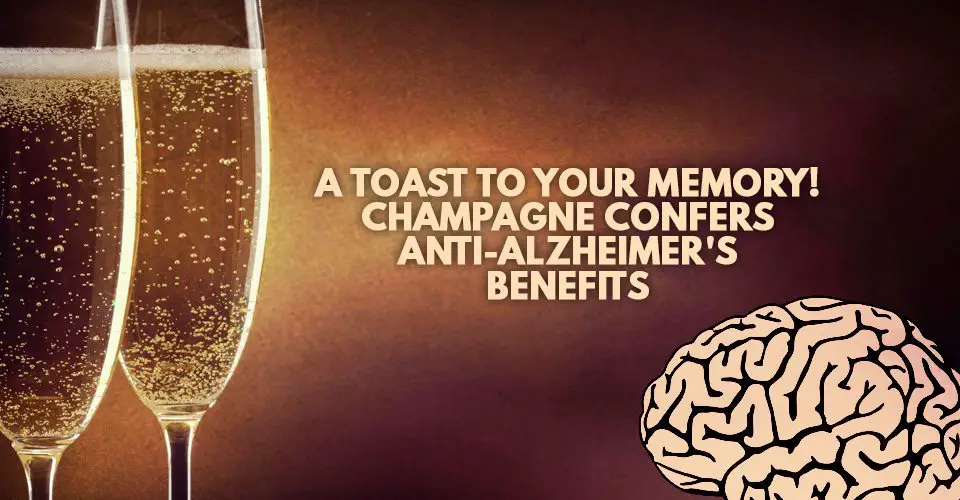
In a study conducted by the University of Reading in 2013, scientists determined that the consumption of champagne can actually improve certain brain functions. These functions contribute specifically to protection against Alzheimer’s disease, the age-onset crippling neurological disorder affecting 5.2 million Americans.
Buy an “Intelligence is sexy” t-shirt!
The study was conducted on rodents in initial testing and showed that the phenolic compounds present in champagne improves spatial memory, “which is responsible for recording information about one’s environment, and storing the information for future navigation” as noted by the study. Because the phenolic compounds present in champagne previously showed no biological activity, scientists were surprised by the findings.
Phenolic compounds are present because of the interaction of red grapes, specifically Pinot Noir and Pinot Meunier, with white grapes used to make champagne. While champagne was previously thought to only contain benefits similar to white wine, the presence of the red grapes is significant enough to create a possible phenolic effect that suggests memory skills may be improved by its moderate consumption.
Champagne is the official bubbly brain function booster.
Moderate is, of course, the name of the game. Scientists caution against excessive consumption of alcohol, especially for patients struggling with symptoms of Alzheimer’s and dementia. Up to three glasses per week may be, according to scientists, a perfect amount; any greater volume would potentially do more harm than good.
The likely reason for the activity of the phenolic compounds in the red grapes is the presence of flavonoids. Flavonoids are groups of plant metabolites thought to offer antioxidant protection and greater efficiency to cellular pathway signaling. They may provide a wide range of health benefits to humans.


